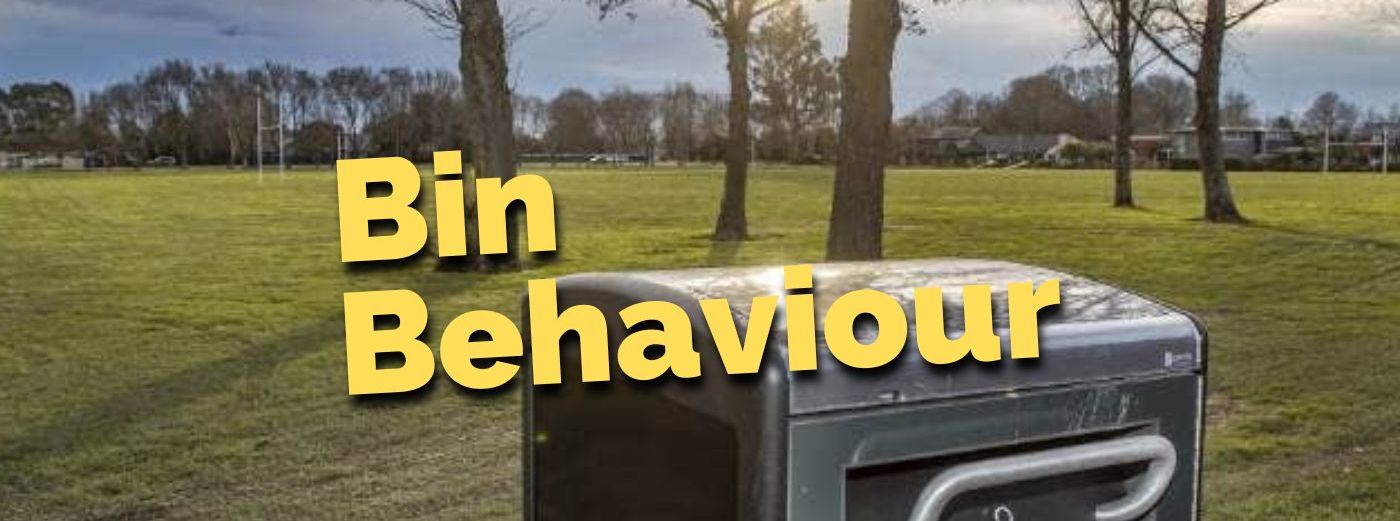
Removing bins from parks has been a hot topic in parts of Christchurch but the controversy caused has also brought to the fore the opportunity for the behaviour change that we need to conquer the issue of litter.
In 2022, Japanese football fans caused quite a stir at the World Football Cup in Qatar when they collectively cleaned the stands after their team’s games. They described their actions as being “atarimae” which sort of translates to “nothing special”; it was just what they would expect to do in most situations – to clean up after themselves. It is an attitude developed by the constant cultural expectation of the Japanese people daily reinforced among Japanese schoolchildren, who spend a 15-minute period each day cleaning their classroom.
Atarimae in New Zealand DOC generally does not have public use bins in National Parks nor in many of its campsites throughout New Zealand – its mantra is, “Take your litter with you”. This policy has been in place for many years and gradually, using DOC facilities in New Zealand and taking all your rubbish home with you is becoming “atarimae”. It has taken some years, there has been resistance and there is by no means complete acceptance, but nonetheless, the idea of “take your litter with you” from National Parks is catching on. It shows that attitudes towards what we do with rubbish can change.
Bins in Christchurch parks During 2021, as a cost cutting measure, Christchurch City Council removed 840 rubbish bins from city parks and has replaced them with over 115 larger hi-tech bins. There was a great deal of push-back from residents used to offloading their litter and doggy poo bags into the removed bins. A common comment on social media was to the effect that collecting and removing rubbish was core Council operations. Now that some time has passed without the return of the original bins, things appear to have settled down with rubbish largely placed in the new bins or taken home. Occasionally and unfortunately, it is thrown where it is not desired and where it can end up in the river. But behaviour change that moves towards owner responsibility for rubbish is happening in these parks.

The downside of the message that providing a bin creates….a bin in Hunter Tce. If there had been no bin, this mess would not have been created.
Why bins at all? It does raise the point, why provide bins at all in parks or, indeed, anywhere in public. After all, residents are provided, at considerable expense, with a comprehensive weekly waste collection service directly to the footpath outside their accommodation. If we take a piece of paper, plastic or food into a public space, is it not a reasonable expectation that we will also take that same piece of paper, plastic or food out of the public space when we leave? It should not matter that we do not want to keep the item any longer. Just as in a National Park, we are all capable of retaining rubbish until we can dispose of it appropriately at home. If there were no public bins at all, over time most of us would develop the atarimae of taking our rubbish home. Public rubbish bins were removed from Japanese cities following the 1995 sarin gas attacks, and while public bins have started to make a cautious return to Japanese public spaces, fears that their removal would lead to an uptick in litter have proved to be largely not the case.
A bin’s message When a council places a rubbish bin in a public space it’s making a statement. Its saying “Place rubbish here and we will take over responsibility for it”. Providing a public bin gives people with a perfectly reasonable excuse for giving over responsibility for their own rubbish to the Council. That is probably not a good idea if we want to change attitudes towards reducing rubbish and litter. Unfortunately and unlike our own private rubbish, the contents of a public bin can almost never be appropriately recycled – the contamination levels and the cost of sorting it just prohibit that happening. Another excellent reason for removing public bins altogether.

The ‘big belly’ bins installed in recent years to reduce cost and wind-blown litter in Christchurch parks.
Convenience – the great evil The great motivator of consumerism is convenience. Convenience has driven the phenomenal growth of the fast food industry, supermarkets, blister packs, and the whole gambit of packaging – particularly plastic packaging. As we are all coming to realise, there are massive downsides to convenience. Perhaps the greatest of these is the pollution of our planet’s ecosystems and food chains by ubitquitous microplastic particles, many of which start life as packaging for consumer goods and convenience foods. We are starting to realise that we will have to rethink the whole cost/benefit equation for convenience and packaging if we are to reduce the impact of plastic on our environment.
It feels like we are inexorably moving towards a time when we all take greater responsibility for ourselves, our planet, our CO2 emissions, our rivers and our rubbish, not necessarily in that order.
